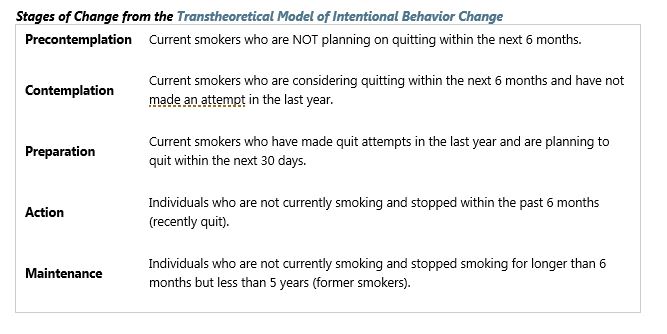Assess
Patients' motivation to quit smoking should be assessed at
every visit. Patients not yet willing to quit should receive
a motivational intervention.
Readiness
rulers
(i.e., “On a scale of 1 to
10, where 10 is very ready, how ready are you to quit
smoking?”) and Stages of Change assessments are useful
in addressing the extent to which a person is ready to
change, which can change from visit to visit. Behavior
change can be conceptualized into five progressive stages:
precontemplation, contemplation, preparation, action, and
maintenance (below).

Although tailoring interventions to a patient's stage of
change may not be necessary, these stages emphasize that not
all patients are equally motivated to quit smoking.
Motivation is malleable, and patients can be assisted toward
behavior change through clinician intervention.

Another useful tool that is also motivational is the CO
monitor. Tobacco smoke contains a significant amount of
carbon monoxide (CO). The breath CO monitor can be used as a
validating, motivational, and educational tool. CO testing
is a billable outpatient service and can contribute to the
sustainability of face to face tobacco use treatment
services.